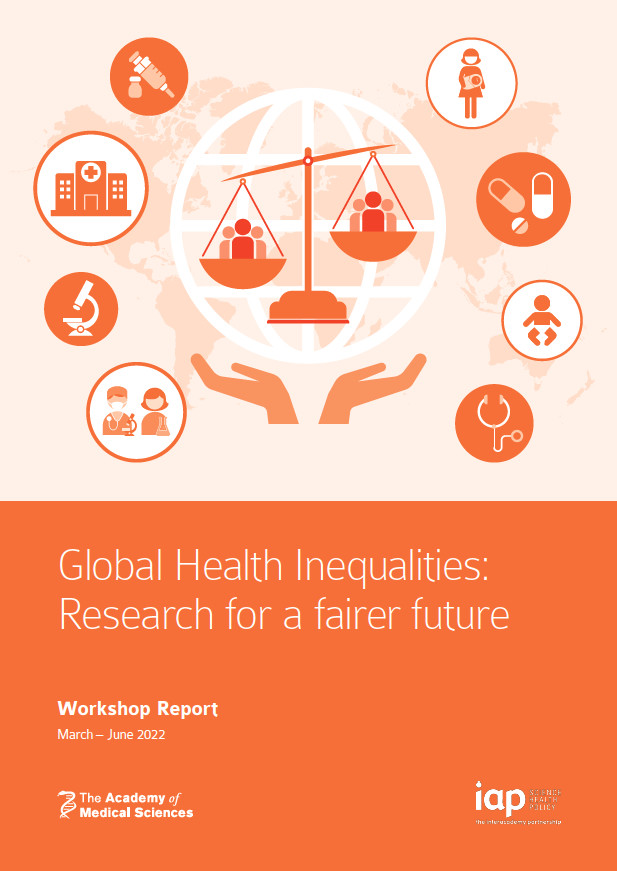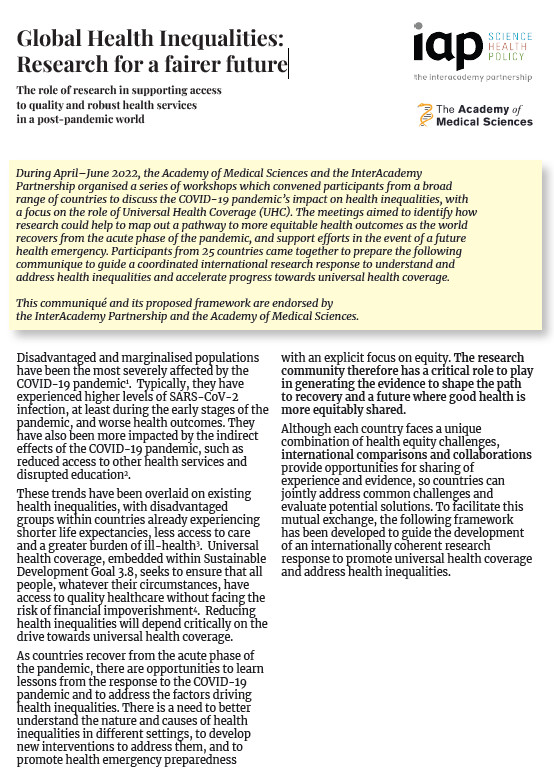The Academy of Medical Sciences and the InterAcademy Partnership (IAP) recently delivered a series of workshops that brought together participants from 25 countries to identify how research can create more equitable health outcomes and facilitate future health emergency preparedness.
Disadvantaged and marginalised populations have been the most severely affected by the COVID-19 pandemic, on top of existing health inequalities which means they were already experiencing shorter life expectancies, less access to care and a greater burden of ill-health.
We have now released a joint statement which serves as a framework on using research to address global health inequalities and making universal healthcare possible.
The statement highlights that the research community has a critical role to play in generating evidence to shape the path to recovery and a future where good health is more equitably shared. It provides a framework for international comparisons and collaborations, sharing of experience and evidence to jointly address health inequality.
Here are the key points:
- Engage communities: Prioritise deep and meaningful engagement with affected communities and marginalised populations, build trust and liaise with community leaders and non-governmental organisations.
- Data to understand the issues: Collect, store, and share high quality data on key health and social indicators to fairly identify the barriers to equitable health outcomes.
- Research intervention to make a difference: Undertake varied research. Think cohort, natural experiment and other observational studies, action research, implementation research, health systems research, health economics research, policy research and clinical trials. Studies should take a broad perspective, recognising the complexity of the context and the critical importance of primary healthcare.
- Emergency preparedness: Use the research to inform the development of more effective health emergency responses. These should include plans that explicitly include an equity focus.
- Collaborate with other disciplines: Embrace an integrated interdisciplinary approach by bringing together researchers with expertise in medical, social, epidemiological, economic, demographic, ethics and other domains, and with interests in areas such as equity, gender and race.
Visit our Global Health Inequalities project page to view the full statement which calls upon researchers, national and regional policymakers, funding agencies and other stakeholders to apply this framework to develop research agendas and to ensure that they lead to action.
Our 10-year strategy highlights health inequalities as a strategic priority, and we will endeavour to draw upon this work to inform our future activities on cross-cutting issues, both in the UK and globally.

